- Home
- Paul Jennings
Unreal Collection! Page 7
Unreal Collection! Read online
Page 7
We were famous. The TV people came and did a lot of shows about Chris and the baby. Everyone wanted to see the little green baby from the cabbage patch.
Doctors and scientists and people from the hospital came to see it. They all wanted to take it away but none of them did any good. The baby just held its breath whenever anyone came close.
Chris didn’t care at first. He had two weeks off school and he loved his new child. In the end though, the terrible day came.
‘You will have to go back to school, Chris,’ said Mum. ‘You can’t stay home here for the rest of your life.’
‘But what about the baby?’ he protested. ‘I can’t leave the baby. It will die without me.’
‘The baby can go too,’ said Mum. ‘I have already made the arrangements at the school. You can put its bassinet next to your desk.’
The next day Chris fronted up to Shepparton Primary School. Every kid in the school was there to meet him and see his new baby. Chris’s teacher, Mrs Manley, was there too. ‘Make way,’ she said. ‘Give Chris and his baby room to breathe.’
‘Isn’t he a lovely mother?’ said someone in an unkind voice.
The bell went and everyone trooped into school. One of Chris’s mates told me what happened next. It was terrible.
Chris put the baby and its bassinet down next to his desk and started his Maths. After a while the baby started to cry.
‘It wants a feed,’ said Mrs Manley. ‘Go and get its bottle, Chris.’
Chris groaned. He didn’t want to stop his work. He liked Maths. It was his best subject.
The baby sucked away at the bottle. It was a quick drinker. As soon as it was finished it started to cry again.
‘It’s got wind,’ said Mrs Manley. ‘You will have to burp it, Chris.’
Chris put the baby up on his shoulder and patted its back. Suddenly the baby gave an enormous burp which echoed around the room. The class started to laugh like mad. Everyone rolled around with tears running down their faces. They thought it was a great joke. Everyone except Chris. He was embarrassed and he looked down at his shoes.
At lunch time things were even worse. Everyone was playing British Bulldog.
‘I’m sorry, Chris,’ said Mrs Manley. ‘But you just can’t play. It’s too dangerous. If you fall over with the baby in your hands it might get hurt.’
Chris tried to give his baby to a friend to mind but it just started to hold its breath and turn purple so he had to come back.
He sat sadly on a seat watching the other kids play. The baby slept on his lap. Soon about ten kids came and sat with him. They all had Cabbage Patch dolls in their hands. Every one of them. Every time Chris did something with his baby the others would copy him. If he gave the baby a dummy, they gave their dolls a dummy. Chris tried to escape but they followed him everywhere.
In the afternoon there was more trouble. While the class were doing Spelling someone said, ‘Pooh, who fluffed?’
‘What a stink,’ said someone else.
The kids all held their noses and grinned and pointed at each other. Mrs Manley was cross with them. ‘It’s the baby,’ she said. ‘It needs its nappy changed.’
Poor old Chris. He had to change the baby’s nappy while the whole class watched. He held up its legs and wiped the yellow gunk away from the baby’s bottom. ‘Ugh,’ said someone. ‘It’s horrible.’
Chris had tears in his eyes. He grabbed up the baby and rushed home without stopping.
5
That night at tea, Chris started shouting at everyone. ‘I don’t want a baby any more. I like it but I don’t want to look after it. I don’t like being a father. I just want to be a kid. I want to go fishing and climb trees and play British Bulldog. I don’t want a whole lot of people following me around with Cabbage Patch dolls.’
Mum looked sad.‘I don’t know what we can do, Chris. It won’t let anyone else touch it except you. You don’t want it to die, do you?’
Chris didn’t answer. He picked up the baby and stomped off.
That night when everyone else was asleep I once again heard Chris creep out of the house. He had the baby with him. Once again I followed him down to the cabbage patch.
I watched as Chris put the baby on the ground and started to creep off. ‘What are you doing?’ I shouted. ‘You can’t go off and leave it.’
‘It’s not mine,’ he yelled back. ‘I don’t want it. This is where it came from and I’m putting it back.’ Without another word he turned around and rushed off. His footsteps faded off into the night.
I looked at the baby. It was already turning purple and had stopped breathing. I didn’t know what to do. I picked it up and tried to give it mouth-to-mouth resuscitation but I couldn’t get its mouth open. It had it closed like a vice. I turned it upside-down and gave it a whack on the bottom but that didn’t work either. The baby grew still. I had never seen it so purple before. I thought it must be dead.
A tear ran down my face and plopped onto its little purple ear. ‘Don’t die, baby,’ I whispered. ‘Please don’t die.’
Suddenly two hands reached down and took the baby from my arms. It was Chris. ‘I couldn’t do it,’ he said. ‘I couldn’t let it die.’
The baby started to breathe again and soon was its normal green colour.
We sat down on the ground and talked. We talked for hours but we couldn’t think of any way to get Chris out of his problem. It looked like the poor kid was stuck with the baby until it grew up.
Then, just as we were about to go back inside I noticed something. ‘Hey,’ I said. ‘That’s a big cabbage.’ We both looked. One of the cabbages was huge. I had never seen such a big one before.
‘It’s growing,’ yelled Chris. ‘Wow. Look at that. It’s growing in front of our eyes.’
I started to get nervous. Something funny was going on. This cabbage was growing so quickly that you could actually see it expanding. It grew and grew until it was as big as a car. Then it stopped growing and just sat there.
‘I’m getting Dad,’ I said. But before I could move, an enormous leaf fell down to the ground like a door opening up on the side of the cabbage. It was hollow inside.
Without any warning a small green woman with a pointed chin ran out and grabbed the baby from Chris. The baby grew even greener and started to smile.
The green woman began chit-chattering away in some foreign language in a high squeaky voice. We couldn’t understand a word but we knew one thing. Boy, she was mad. She was shaking her finger at us and screaming away like nothing.
‘It’s not our fault,’ I said. ‘We didn’t take your baby. It was left here. We don’t want it. You can have it back.’ Chris was nodding away like mad. He had a big smile on his face.
Without another word the little green woman turned around and rushed back into her cabbage with the baby.
The leaf flapped back up and the cabbage was closed. Straight away it started to shrink. The cabbage shrivelled up in front of our eyes until it was just a few shrunken, rotten leaves on the ground.
The baby and its mother had gone. I don’t know where they went but I do know one thing. Chris was real pleased that the baby had found its own people.
Well, that’s just about the end of the story. Dad pulled out all the cabbages and planted onions instead. He said that it was better to be on the safe side as the family was already big enough with six children.
Mum looked him square in the eye. ‘There is one more thing,’ she said. ‘You take that boy off into the bedroom this minute and you tell him where babies really come from.’
Dad went red but he led Chris off and they had a good long talk. When they came out Dad looked embarrassed but Chris didn’t. He looked quite chirpy.
‘Well,’ said Mum. ‘Do you know the truth about babies now?’
Chris nodded happily.
The next night I was once again awakened by Chris leaving the house. This time he didn’t go down to the vegetable garden. He fetched a ladder and went up onto the roof.
‘Shh,’ he said, putting a finger up to his lips, ‘Or you’ll scare them off.’
‘Scare what off?’ I asked.
‘The storks. Dad told me how they bring the babies and drop them down the chimney.’
I took Chris back inside and sat him down. Then I told him honestly where babies really come from. This time he believed me. ‘Wow,’ was all he said. Then he jumped up and ran out of the room.
‘Where are you going this time?’ I yelled.
‘To have a little talk with poor old Dad,’ he said. ‘It’s about time somebody told him the truth.’
Someone was playing music in the middle of the night. It sounded like a saxophone, or maybe a clarinet. I could only hear it when the wind dropped. But there was no mistake about it.
I shivered even though I was snug in bed. I wasn’t cold. I was scared. Stan and I were the only people on the island, and he was in bed in the next room. I could hear him snoring. So who was playing the music?
It was cold outside and a storm was brewing. I could hear the sea pounding against the cliffs. I got out of bed and looked out of the window. All I could see were the black clouds racing across the moon, and the light from the lighthouse stabbing into the night. The music seemed to be coming from the lighthouse.
I thought about waking Stan up, but I decided not to. He was the lighthouse keeper. He was a nice old boy but I didn’t want him to think I was scared. I was hoping to get a job as a lighthouse keeper myself one day. This was my first night on the island and I wanted to make a good impression.
I climbed back into bed and tried to get to sleep. I tried not to listen to the music. It was soft and far away, but it crept into my brain. It was like a soft voice calling to me. It was saying something; it was speaking without words. I knew I had heard the tune before, but I couldn’t think what it was. It was a slow and haunting tune. Then it came to me. I remembered. It was called ‘Stranger On The Shore’.
Somehow I knew that the music was meant for me. I was the stranger. I had just arrived on the island. The supply boat had dropped me on the shore that very day. But who was playing the music? And why did it make me feel so sad?
I listened more carefully. It was a clarinet. It was definitely a clarinet. And man, I will tell you this: whoever was blowing it knew how to play. It was the saddest and most beautiful music I have ever heard.
Then the music changed. There was something different about it. Finally I realised what it was – another instrument had joined in. It was a saxophone. They were both playing ‘Stranger On The Shore’. It was so sad that I felt like crying, but I didn’t know why.
After a long time I fell asleep with the music still sounding in my ears.
2
The next morning at breakfast I asked Stan if he had heard anything. ‘No, Anton,’ he said. ‘I didn’t hear anything. I never do. But I know there is something there. Visitors to the island always hear it. Most people can’t stand it. They get scared and leave. You are the third helper that I have had here this year. The other two left because of the music. They said it kept them awake at night. But the real reason was because they were scared – scared out of their wits.’
He looked straight at me when he said this. He was wondering if I was going to run off too. He glared at me with his one eye. He had a patch over the other one. He looked like a fierce pirate, but he was really a friendly bloke. He loved that island more than anything in the world.
‘Well, who could be playing the music?’ I asked him. ‘And why can’t you hear it?’
He looked at me for a long time. He looked straight into my eyes, as if he was trying to see what I was thinking. Then he said, ‘The last boy went up to the lighthouse one Friday night. The music always plays on Friday night. He took a torch and went off to see who was playing. He was gone for two hours. When he came back he wouldn’t say anything about it. He just said that he was leaving. He wouldn’t speak to me. He wouldn’t answer any questions at all. He just sat and looked at the wall. A week later the supply boat came and he left.’
‘He must have seen something terrible,’ I said. ‘Don’t you have any idea who could be playing?’
‘Put on your coat, boy,’ Stan said, ‘and come with me. I’ll show you something.’
A strong wind was blowing. It was coming from the south west. Stan took me along a track which ran along the top of the rocky cliffs. There were no trees; the wind was too strong for trees to grow on the island. At last we came to a small fence in the shape of a square. Inside were two graves. The headstones faced out to sea. It was a lonely, windswept spot, high on the cliff.
We opened a small gate and went inside the cemetery. I looked at the headstones. The first one was engraved like this:
CAPTAIN RICK ARD
1895–1950
LIGHTHOUSE KEEPER FROM
1915–1950
R.I.P.
The second gravestone was not much different, but it had another name on it. It said:
ALAN RICKARD
1915–1960
LIGHTHOUSE KEEPER FROM
1950–1960
R.I.P.
Stan pointed to the grave of Captain Rickard. ‘He was my grandfather,’ he said. ‘And Alan Rickard was my father.’
Both gravestones had a small drawing in the corner. The one of Captain Rickard had a clarinet. Alan Rickard’s grave had a saxophone.
‘All the lighthouse keepers have been musical,’ said Stan. ‘The Captain played the clarinet. And my father played the saxophone. I play the violin. Do you play anything, boy?’
‘Yes,’ I replied. ‘I play the flute.’
3
Stan and I walked slowly back to the house. The wind was blowing strongly. It flattened the grass and made my hair whip into my eyes. Stan had to shout so that I could hear.
‘I can’t play the violin any more,’ he told me. ‘My fingers won’t work properly. I have arthritis. The violin is in the music room at the top of the lighthouse. My grandfather and father used to play up there when they were alive. It was something to do when they were on duty. I don’t go in there any more; I can’t bear to look at my violin.’
Stan’s eye was wet. Perhaps the wind was doing it. Or was he crying?
We walked back to the house without speaking. I didn’t know what to think. Did the two graves have anything to do with that sad music? The dead captain had played the clarinet. And his son had played the saxophone. But they were dead, and dead men play no tunes. Or that’s what I thought.
One day I decided that I would go up to the top of the lighthouse. I might find some clues. But I was not going to go in the night time. Nor was I going to go on a Friday.
The next day was Thursday. I told Stan I was going for a walk to look around the island, but I went to the lighthouse. I had been there before. Stan had taken me up on the first day. I had been in and seen the huge light that went around and around at night. But I had not been in the music room, and I had not been up there on my own.
I pushed open the door at the bottom and went in. It was gloomy inside. There were small windows in the wall and they let in a little bit of light. The stairs went around and around. Stan had told me that there were twenty turns altogether. I went slowly up the stairs. It was as quiet as a grave. About half way up I looked over the side of the stairs. It was a long way down; I felt giddy. I sat down on a step and listened. Nothing. Not a sound. I was sure that I was alone.
At last I reached the top. There were two doors. One led into the light; the other was the door of the music room. I tried the handle. It was stiff, but it opened, and I stepped inside. The room looked like a cabin in a ship. It had bunks against one wall and maps all over another. There was a desk with a globe of the world on it. Instead of a window there was a small, round porthole. Pointing out of the po
rthole was a telescope. There was a music stand and a small table. On the table was a clarinet, a saxophone and a violin.
I went and looked at the musical instruments. They were covered in dust; they had not been played for a long time. The violin had a spider’s web inside it. I picked up the clarinet and blew it. A terrible noise came out of it – it sounded like a bullfrog choking.
These instruments could not have been playing on Friday night.
They had not been played for years. I had not got any closer to solving the mystery, but I knew that the music had been coming from that room. I could feel it in my bones.
I decided to leave. There was something creepy about the room. I felt as if someone was watching me.
4
Over the next few months I was kept very busy on the island. I had to measure the rainfall and record the weather. I had to man the radio and listen for ships that were in trouble. And every night at five o’clock I had to climb the stairs of the lighthouse and start up the light. I didn’t go into the music room, and I didn’t say any more to Stan about the music.
But every Friday at about midnight the music would start. It was always sad, haunting music. I could never sleep while it was playing. It seemed to be calling me. The names of the tunes always seemed to have a special meaning – a meaning just meant for me.
It was upsetting. I wasn’t scared any more, but I couldn’t sleep on Friday nights. I just lay there waiting for the music to start. And then I lay awake waiting for it to stop. I couldn’t stop thinking about it. I wondered who was playing and why.
In the end I decided to go and see. I made my plans carefully. I decided not to tell Stan. I put fresh batteries in the torch and found an old baseball bat. The baseball bat was in case there was any trouble. The next Friday I waited until Stan was in bed asleep; then I stepped out of the house and into the dark night.
It was cold and windy. The moon was hidden behind black clouds. Spray was blowing up from the sea and the waves were crashing and sucking beneath the cliffs. In the distance I could hear music. It was coming from the lighthouse. I walked slowly, fighting against the wind. At last I reached the lighthouse door.

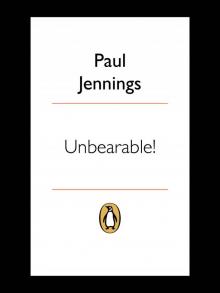 Unbearable!
Unbearable!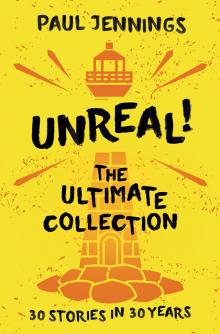 Unreal Collection!
Unreal Collection!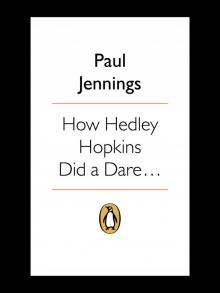 How Hedley Hopkins Did a Dare...
How Hedley Hopkins Did a Dare...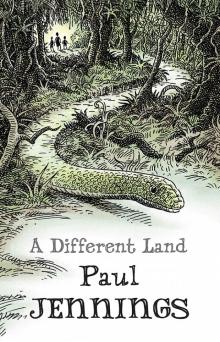 A Different Land
A Different Land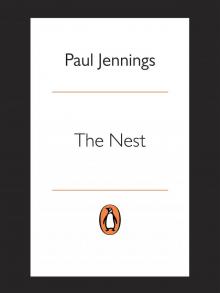 The Nest
The Nest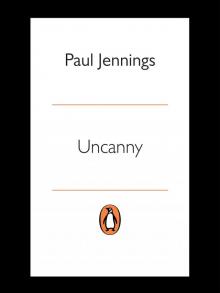 Uncanny!
Uncanny!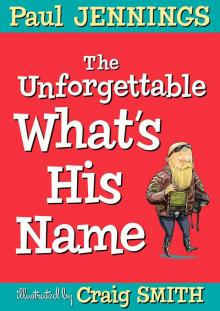 The Unforgettable What's His Name
The Unforgettable What's His Name Paul Jenning's Weirdest Stories
Paul Jenning's Weirdest Stories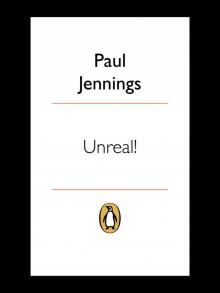 Unreal!
Unreal! Paul Jenning's Spookiest Stories
Paul Jenning's Spookiest Stories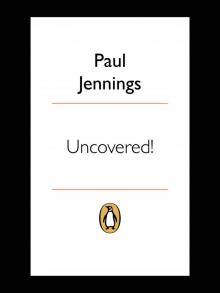 Uncovered!
Uncovered!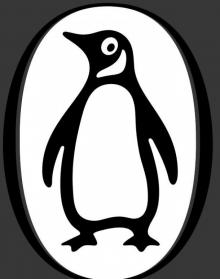 Paul Jennings' Trickiest Stories
Paul Jennings' Trickiest Stories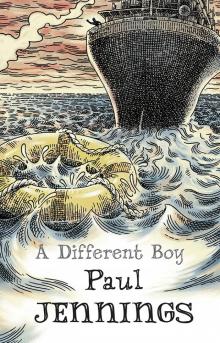 A Different Boy
A Different Boy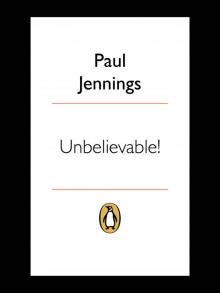 Unbelievable!
Unbelievable!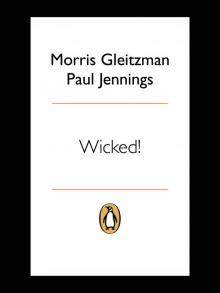 Wicked Bindup
Wicked Bindup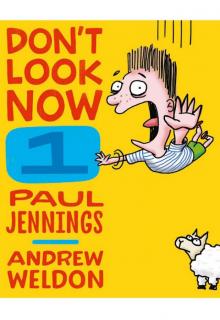 Don't Look Now 1
Don't Look Now 1